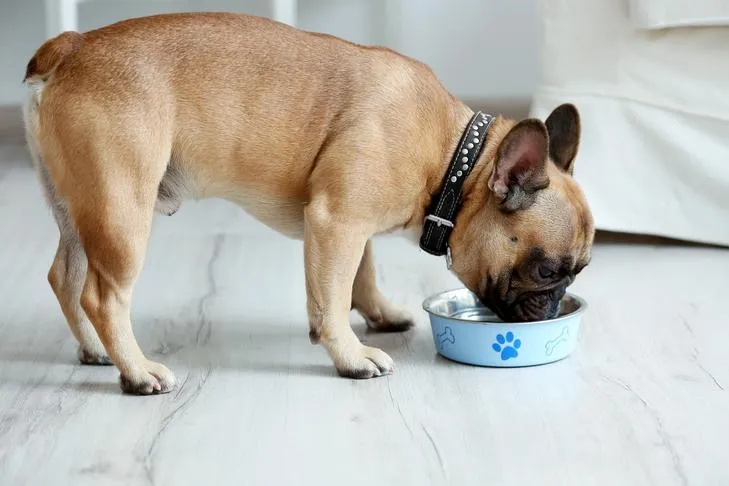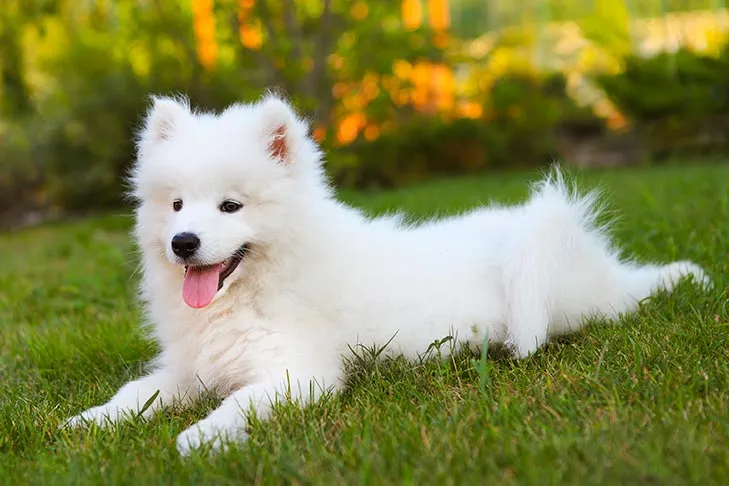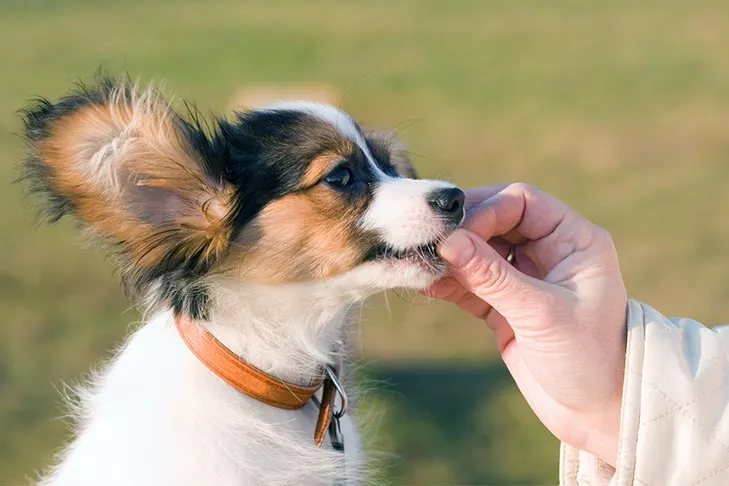As devoted pet parents, we constantly strive to provide the best for our furry family members, and their diet plays a pivotal role in their overall health and happiness. While commercial dog food is formulated to meet their nutritional needs, it’s natural to wonder if you can share some of your own snacks and meals. However, knowing what food dogs can eat and, more importantly, what they cannot eat, is crucial for preventing health issues. This comprehensive guide from Dog Care Story will walk you through common human foods that are safe for your canine companion, along with those that pose significant dangers, ensuring you make informed choices about your dog’s diet. Understanding what we can give dogs to eat safely means protecting their well-being every day.
Safe Human Foods for Your Canine Companion
Many human foods, when prepared correctly and given in moderation, can be healthy and enjoyable treats for your dog. They offer additional nutrients and variety to their diet.
Fruits and Vegetables
Corn: This common ingredient in many dog foods is perfectly safe for your dog, but with a crucial caveat: it must be off the cob. Corn on the cob can cause severe intestinal blockages, which often require emergency surgery. Ensure the kernels are fully removed before offering.
Coconut: This tropical fruit contains lauric acid, known for its antibacterial and antiviral properties. Coconut can also help with bad breath and alleviate skin conditions like hot spots, flea allergies, and itchy skin. Both coconut milk and coconut oil are safe for dogs. Just be absolutely certain to remove all parts of the hard, fibrous outer shell, as it can be a choking hazard or cause internal injury.
Quinoa: Increasingly found in high-quality dry dog foods, quinoa is a nutritious grain. Its robust nutritional profile makes it a healthy alternative to common starches like corn, wheat, and soy, providing essential amino acids and fiber.
Meats and Proteins
Eggs: Fully cooked eggs are a fantastic source of protein and can even help soothe an upset stomach. It’s vital to cook them thoroughly, as raw egg whites contain avidin, which can lead to biotin deficiency in dogs over time. Scrambled or hard-boiled are excellent choices.
Fish (Salmon, Tuna, Shrimp): These aquatic delights offer a wealth of good fats and amino acids, boosting your dog’s health.
- Salmon: Cooked salmon is an excellent source of protein, omega-3 fatty acids, and amino acids, promoting joint and brain health and supporting the immune system. However, never feed raw or undercooked salmon, as it can contain parasites causing severe illness (salmon poisoning disease), characterized by vomiting, diarrhea, and dehydration, potentially leading to death. Cook it completely to eliminate these risks.
- Tuna: In small, infrequent amounts, cooked fresh tuna is a good source of omega-3 fatty acids for heart and eye health. Canned tuna (in water, not oil, and without added spices) is also acceptable in very limited quantities due to its mercury and sodium content.
- Shrimp: Fully cooked shrimp, with the shell, tail, head, and legs completely removed, can be a healthy snack. They are rich in antioxidants, vitamin B-12, and phosphorus, while being low in fat, calories, and carbohydrates.
Ham: While not the healthiest option due to its high sodium and fat content, a very small, unseasoned piece of cooked ham is generally safe. It should be an occasional treat, not a regular part of their diet.
 Happy French Bulldog enjoying a meal from its bowl at home, demonstrating healthy dog eating habits.
Happy French Bulldog enjoying a meal from its bowl at home, demonstrating healthy dog eating habits.
Pork: Lean, cooked, and unseasoned pork is a highly digestible protein, packed with amino acids. It tends to have more calories than some other meats but may be a good option for dogs with allergies to more common proteins like chicken or beef. Always ensure it’s thoroughly cooked and free of bones.
Turkey: Cooked, lean turkey meat (without skin or excess fat) is safe for dogs. Always remove bones, as poultry bones can splinter and cause internal injuries or blockages. Avoid any turkey prepared with excessive salt, seasonings, onions, or garlic, as these can be harmful.
Wheat or Grains: Despite popular misconceptions, grains like wheat and corn are not inherently bad for dogs unless they have a specific allergy. They are excellent sources of protein, essential fatty acids, and fiber. Consult your veterinarian if you suspect a grain allergy.
Dairy and Nuts (in Moderation)
Bread: Small amounts of plain, unseasoned bread are generally harmless. However, it offers no nutritional benefits and is high in carbohydrates and calories. Avoid breads with spices, sweeteners, or especially raisins, which are toxic to dogs. Store-bought bread often contains preservatives, so homemade is a better, though still non-nutritious, choice.
Cashews: Cashews are acceptable for dogs in very small quantities. They contain beneficial calcium, magnesium, antioxidants, and proteins. However, even though they are lower in fat than some other nuts, too many can contribute to weight gain. Always offer unsalted cashews.
Cheese: Most dogs can enjoy small to moderate amounts of cheese, as long as they aren’t lactose intolerant (a rare but possible condition in dogs). Lower-fat varieties like cottage cheese or mozzarella are preferable, as many cheeses are high in fat. Cheese can be a high-value treat, and some dogs even love specialized dried cheese chews.
 Golden Retriever looking at cheese on a kitchen table, curious about human food.
Golden Retriever looking at cheese on a kitchen table, curious about human food.
Milk: While many dogs love milk, be cautious. Some dogs are lactose intolerant and may experience digestive upset. Small amounts are usually fine, but if your dog shows signs of intolerance (diarrhea, gas), stick to water.
Peanut Butter & Peanuts: These are popular and generally safe treats.
- Peanut Butter: An excellent source of protein, healthy fats, vitamins B and E, and niacin. Always choose raw, unsalted peanut butter. Critically, read the label carefully to ensure it does not contain xylitol, an artificial sweetener that is highly toxic and potentially fatal to dogs.
- Peanuts: Unlike almonds, plain peanuts are safe for dogs. They provide good fats and proteins. Offer in moderation, and avoid salted varieties, as excess salt can be detrimental to a dog’s health.
Yogurt: Plain, unsweetened yogurt can be a healthy snack. For dogs that can digest dairy, the active bacteria (probiotics) can support a healthy digestive system. Always avoid yogurts with added sugars or artificial sweeteners, especially xylitol.
Other Safe Treats
Honey: Packed with nutrients like vitamin A, potassium, calcium, magnesium, copper, and antioxidants. Small amounts of local honey can even help dogs build immunity to seasonal allergens by introducing small quantities of pollen to their system. Honey can also be used topically for minor burns and superficial cuts.
Popcorn: Air-popped, plain, unsalted, and unbuttered popcorn can be a treat in moderation. It contains riboflavin and thiamine (beneficial for eye health and digestion), as well as small amounts of iron and protein. Ensure all kernels are fully popped to prevent choking hazards or digestive issues.
 Fluffy Samoyed puppy resting peacefully in green grass outdoors, symbolizing dog wellness and outdoor activities.
Fluffy Samoyed puppy resting peacefully in green grass outdoors, symbolizing dog wellness and outdoor activities.
Toxic Human Foods Dogs MUST Avoid
While many human foods are safe, there are some that are highly toxic and can cause serious illness, organ damage, or even death in dogs. It’s crucial to be aware of these dangers and keep them strictly out of your dog’s reach. Always consult your veterinarian immediately if you suspect your dog has ingested any of these.
Chocolate: Contains theobromine and caffeine, which dogs metabolize much slower than humans. Even small amounts can cause vomiting, diarrhea, tremors, seizures, and heart problems. Dark chocolate and baking chocolate are the most dangerous.
Grapes and Raisins: The exact toxic substance is unknown, but these fruits can cause sudden kidney failure in dogs, even in small quantities. All forms—fresh, dried, or in baked goods—are dangerous.
Onions, Garlic, and Chives: These alliums contain compounds that can damage a dog’s red blood cells, leading to anemia. Symptoms may include weakness, vomiting, breathlessness, and collapse. This includes raw, cooked, powdered, or dehydrated forms.
Xylitol (Birch Sugar): A common artificial sweetener found in sugar-free gum, candies, some peanut butter, baked goods, toothpaste, and vitamins. Xylitol causes a rapid release of insulin in dogs, leading to a sudden, life-threatening drop in blood sugar (hypoglycemia) and can also cause liver failure. It is extremely toxic.
Avocado: Contains persin, a fungicidal toxin. While persin is more concentrated in the leaves, bark, and pit, it is also present in the fruit and can cause vomiting and diarrhea in dogs. The large pit is also a choking hazard and can cause intestinal blockage.
Alcohol: Even small amounts of alcohol can be toxic to dogs, causing severe intoxication, vomiting, diarrhea, central nervous system depression, tremors, coma, and even death. Never give alcohol to your dog.
Coffee and Caffeine: Like chocolate, caffeine is a stimulant that dogs are very sensitive to. Coffee beans, grounds, tea bags, and energy drinks can cause restlessness, hyperactivity, elevated heart rate, tremors, and seizures.
Macadamia Nuts: The specific toxin is unknown, but macadamia nuts can cause weakness, tremors, vomiting, fever, and depression in dogs. Symptoms usually appear within 12 hours and can last up to 48 hours.
Raw Yeast Dough: If ingested, raw yeast dough can rise in a dog’s warm stomach, causing painful bloating and potentially a life-threatening gastric dilation-volvulus (GDV or bloat). As the yeast ferments, it also produces alcohol, leading to alcohol poisoning.
Fruit Pits and Seeds: The pits of fruits like cherries, peaches, apricots, and plums contain cyanide, which is toxic. The pits themselves are also choking hazards and can cause intestinal obstructions. Apple seeds also contain cyanide. Always remove pits and seeds before offering fruit.
Essential Guidelines for Feeding Human Foods to Dogs
Introducing human foods into your dog’s diet requires careful consideration and adherence to certain practices to ensure their safety and health. These guidelines will help you navigate what dogs can eat as human food responsibly.
Always Consult Your Veterinarian
Before making any significant changes to your dog’s diet or introducing new human foods, it’s always best to speak with your veterinarian. They can provide personalized advice based on your dog’s specific health conditions, age, weight, and any existing allergies or sensitivities. This is especially important for dogs with chronic diseases like diabetes or kidney issues.
Portion Control and Moderation
Even safe human foods should be given as treats, not as meal replacements, and only in small quantities. Treats should make up no more than 10% of your dog’s daily caloric intake. Overfeeding can lead to obesity, which is a major health concern for dogs and can exacerbate other conditions.
Proper Preparation is Key
Always prepare human foods specifically for your dog. This means:
- Plain and Unseasoned: Avoid salt, pepper, sugar, butter, oils, and other spices or seasonings.
- Cooked: Most meats and eggs should be thoroughly cooked to kill harmful bacteria like Salmonella.
- Boneless and Seedless: Remove all bones, pits, and seeds to prevent choking hazards, internal injuries, or toxic exposure.
- Cut into Bite-Sized Pieces: This reduces the risk of choking, especially for smaller dogs or those who eat quickly.
Introduce New Foods Slowly
When introducing a new food, start with a very small amount and observe your dog for any adverse reactions, such as vomiting, diarrhea, gas, or itchy skin. If no issues arise after 24-48 hours, you can gradually increase the portion size, but always within moderation.
Watch for Allergic Reactions or Digestive Upset
Just like humans, dogs can develop allergies or sensitivities to certain foods. Be vigilant for signs of an allergic reaction (itching, swelling, hives, difficulty breathing) or digestive upset (vomiting, diarrhea, lethargy) after feeding a new food. If you notice any concerning symptoms, stop feeding that food immediately and contact your veterinarian.
 Cute Papillon puppy gently taking a small treat from a human hand, illustrating safe treat giving.
Cute Papillon puppy gently taking a small treat from a human hand, illustrating safe treat giving.
Conclusion
Feeding your dog human foods can be a delightful way to bond and supplement their diet with beneficial nutrients. However, it’s a responsibility that requires knowledge and caution. By understanding what are some human foods that dogs can eat safely and, critically, which ones to avoid at all costs, you can protect your furry friend from harm and contribute to their long-term health. Always prioritize proper preparation, moderation, and consult your veterinarian for personalized dietary advice. Armed with this knowledge, you can confidently navigate the world of human foods for your beloved canine companion. For more insights into dog nutrition and safety, explore other articles on Dog Care Story!
